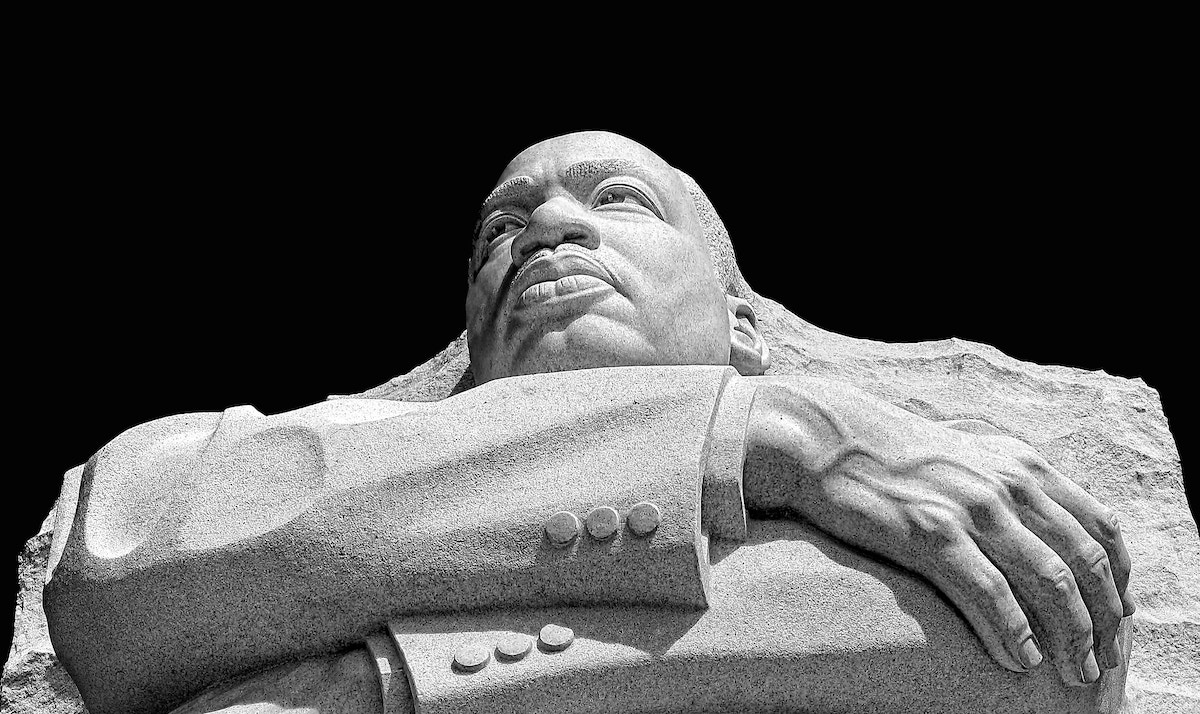On April 5, 1968, I was getting ready for school when my mother came down the stairs to tell me that Martin Luther King, Jr. had been assassinated. We received this news the morning after he had been killed on the balcony of the Lorraine Hotel in Memphis, Tennessee. There was no internet or twenty-four hour news cycle back then. News from the previous evening was either delivered by a morning paper or through a radio broadcast. As third graders, we spent that day somewhat distracted. Miss Blue gave us periodic updates and, later in the day, the school principal assembled all of the children for a time of silence and prayer.
John F. Kennedy was assassinated in 1963. Malcom X was assassinated in 1965. Martin Luther King was assassinated in April of 1968, and Robert F. Kennedy was assassinated in June of that same year. The Vietnam War was at its height, and Richard Nixon would be elected President in about seven months. One year later in 1969, the Apollo spacecraft landed on the moon. It was a tumultuous six years.
And it was into the tumult of that decade, the night before he was assassinated, that Martin Luther King delivered his I’ve Been to the Mountaintop sermon at the Bishop Charles Mason Temple Church of God in Christ, to a standing room crowd of about eleven thousand people. According to Andrew Young, himself a minister and a King confidant, “…he spoke without notes and seemingly without a thought as he poured forth a powerful stream-of-consciousness narrative”. Theologian Rudolf Otto described it as a mysterium transmondum (a transcendent religious moment). And it was a moment that almost didn’t happen.
Dr. King had not been feeling well the previous day. He was tired, depressed, and began talking about taking a few days off to rest. He decided that he wasn’t going to the church that night, and asked Ralph Abernathy to speak and apologize for him. But when Abernathy and Young arrived at the congregation and saw the huge crowd that was assembled, they sent an associate back to the motel to ask Dr. King to make an appearance and offer “just a few” remarks.
The “few remarks” became one of the most eloquent sermons or speeches delivered in the 20th century. In classical African-American call and response preaching, King narrated the arc of history and struggle from the Israelite captivity by the Egyptians to the sanitary workers strike in Memphis, Tennessee.
King was at the height of his intellectual and rhetorical powers. The preacher and his audience were one with the moment. Their struggle was the struggle of all enslaved and impoverished peoples of all generations. Filled with Biblical allusions throughout, from Pharaoh to the Good Samaritan, King brought his audience along to see that their struggle was, in fact, God’s continual struggle to free his people from whatever it was that enslaved them. And then, as any person of faith familiar with the Torah or Old Testament understands, King ended with one final allusion which I will quote in its entirety:
“Well, I don’t know what will happen now; we’ve got some difficult days ahead. (Amen) But it really doesn’t matter with me now, because I’ve been to the mountaintop. (Year) [Applause] And I don’t mind. [Applause continues] Like anybody, I would like to live a long life—longevity has its place. But I’m not concerned about that now. I just want to do God’s will. (Yeah) And He’s allowed me to go up to the mountain (Go ahead) And I’ve looked over (Yes sir), and I’ve seen the Promised Land. (Go ahead) I may not get there with you. (Go ahead) But I want you to know tonight (yes), that we, as a people, will get to the Promised Land. [Applause] (God ahead, Go ahead) And so I’m happy tonight; I’m not worried about anything; I’m not fearing any man. Mine eyes have seen the glory of the coming of the Lord. [Applause].”
King’s final biblical allusion was to Moses; the Hebrew orphan who, by adoption, became a privileged member of Pharaoh’s family. After witnessing the cruelty and bondage of his own Hebrew people, Moses broke with Pharaoh, challenged him and, for many years, led his Israelite people through the wilderness on their way to the Promised Land. Numbers (27:12 ff.) and Deuteronomy (32:49 ff.) reference Moses ascending Mt. Nebo of the Abarim range and seeing the Promised Land of Canaan, but with the understanding that he would never, himself, get there.
The allusion of I’ve Been to the Mountaintop was that King would never get to the Promised Land, either. He knew that his days were likely numbered, and that he wouldn’t live to see the work that he was a part of to fruition. But, importantly, like Moses before him, King was telling his audience that there would be others, like Joshua, to carry on the work of freedom.
The point?
The work of emancipation is holy work. It’s God’s work. And because it is God’s work, women and men are chosen to be God’s hands, feet, and voice. It is holy work that never ends.
Clayborne Carson and Kris Shepard, eds., “I’ve Been to the Mountaintop,” A Call to Conscience: the Landmark Speeches of Dr. Martin Luther King, Jr., (New York: Warner Books, 2002) 207-223.
Click here to read the previous post; On Prudence










In this thoughtful post, Dr. Bullock reminds us the voice of martyrs cannot be silenced by death …a witness born of a conviction to love and serve will live on.
Dick,
Thank you for taking time to read the blog, and for your comments.
Jeff
Thank You. Brings back every moment as my wife and I were both employed at the First Methodist Church in Marion Iowa. Sherrie was DC E and I was Youth director..while I attended U D T S…We both had C E Degrees from the U..We both have been strong backers of Dr Kings work and are sad and VERY concerned in the direction our country is going..Thanks so much for your work with our University and your personal concerns for our Christian Witness..The Bouton’s
Thank you, both, for sharing…and for your service!!
Jeff
I remember vividly where was when Martin Luther King was killed. I had just parked out side of the Indian Welcome House in Los Angeles and while getting out of the car the announcement that he had been shot. I had to sit back down and collect my thoughts. Immediately following, the Supremes sang “Someday.” Every time I hear this song, I remember Dr. King.
Dr. King had invited me and others representing different ethnic groups to Atlanta before the “Poor Peoples’ Campaign” to be held in Washington, D C. We marched with people from the national Council of Churches.
Uncle Cecil,
Thank you so much for sharing your comments and experiences–and for reading the blog! I want to hear more about your experience of the “Poor Peoples’ Campaign” march.
Thanks for commenting!
Jeffrey
Beautifully written piece Dr. Bullock. If all your posts are this good I may become a regular reader (this was my first). Dr. Martin Luther King’s niece Alveda King, continues his legacy. I have the honor of having many mutual acquaintances with her. I hope you can meet her some day.
Thomas,
Thank you for your kind words, and for reading the blog to begin with!!
Thank you.
Jeffrey